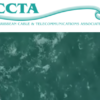News

Once Again, We’re in (Partial) Agreement With Derek Khanna
Derek Khanna, copyright reform activist and driving force behind FixCopyright.com, has published a new op-ed piece on WashingtonPost.com entitled “Let artists, innovators and the public define our copyright system.”
As has been the case with other pieces Khanna has authored, the reaction to this op-ed from the perspective of someone pro-copyright, (and yes, someone whose company offers DMCA takedown services) is a mixed bag. I’m inclined to agree with much of what Khanna says, but I’m bothered by what strikes me as significant omissions.
The central point of the piece seems to be that lobbyists have undue influence over the contours of law and public policy as these areas relate to copyright – a point that is both fair and very, very frequently made by critics of current intellectual property law.
What Khanna doesn’t acknowledge, at all, is that lobbying of Congress isn’t the exclusive domain of “the content industry,” as Khanna calls it. As we’ve covered before on this blog, the tech industry is no stranger to throwing money around Capitol Hill, either.
Beyond that, if lobbying were the end all/be all of influencing Congress, then wouldn’t SOPA have passed? Bellyaching about the content industry ‘owning’ Congress strikes me as a bit off the mark, in light of SOPA’s defeat.
I definitely agree with Khanna that “We can craft a system of copyright that compensates rights holders and incentivizes innovation for start-ups and new artists. It is not an either or proposition. But we’ll only get a balanced copyright system if Congress hears from a broad range of voices.” I have to ask, though: Where is the range and the balance in Khanna’s own argument and rhetoric?
To me, addressing the subject of copyright, and suggesting that consumers need to have a central role in reforming copyright, without even mentioning the widespread piracy of online content, suggests to me that Khanna isn’t really interested in balance; from where I sit, he’s advocating for a loosening and relaxing of copyright law, across the board, it’s just he’s not coming right out and saying so.
Having said that, Khanna’s op-ed is worth reading and considering. We may disagree on some major points, but his is a voice of growing importance in the ongoing copyright reform debate, and he makes plenty of solid points too — particularly about the need for clarity and stability in law, rather than the sort of “now-it’s-legal-wait-no-it’s-not” approach we’ve had to things like jailbreaking smartphones.
At the end of the day, copyright reform should not boil down to one extremist position or the other winning out; it must be a compromise, and advocates of reasonable, measured reform have an important role to play.
Google Empowers DMCAForce to shut down sites…
March 4, 2022

Change the Way you Protect your Content
September 15, 2021

Joins us in the Anti-Piracy Panel at the CCTA 2020 in Bahamas
February 9, 2020
Book Your Meeting During Affiliate Summit
January 22, 2020
Got questions about protecting your digital assets from copyright infringement?


